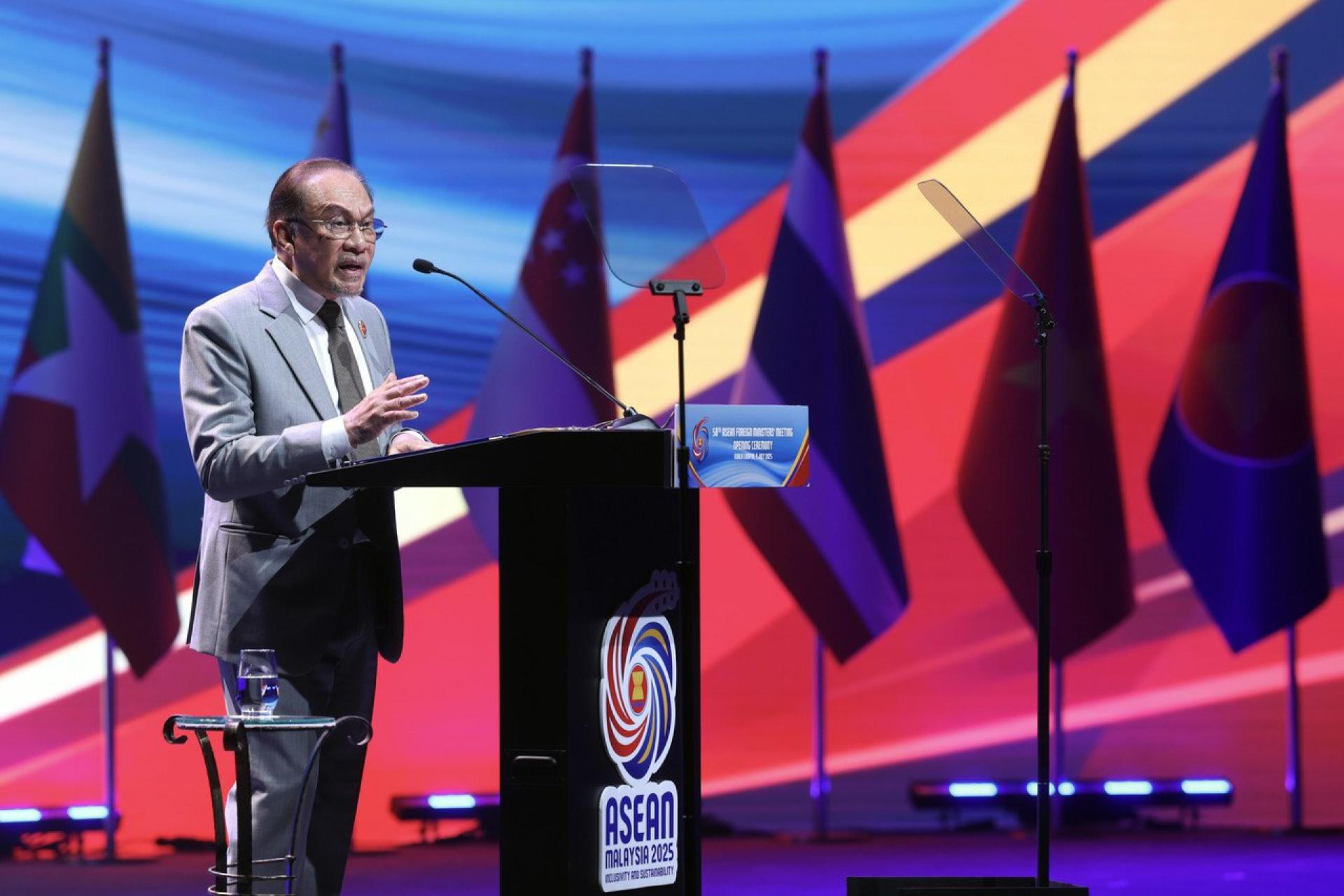Prime Minister Datuk Seri Anwar emphasized that as global instability continues to grow, ASEAN needs to maintain unity and resilience, urging member states to strengthen ASEAN’s centrality and use it as the guiding principle for the region.
In his speech at the opening ceremony of the 58th ASEAN Foreign Ministers' Meeting (AMM) and related meetings, Anwar said ASEAN must continue to serve as the main pillar of dialogue and cooperation in the region, and continue to provide value to its dialogue partners.
“ASEAN centrality must become our North Star, which is reflected in the continuous strengthening and innovation of ASEAN-led institutions.
“We must continue to be the main pillar for dialogue in this region, just as our dialogue partners must continue to find value from their cooperation with us.”
The Prime Minister described the current global situation as “where old certainties are fading and new threats are constantly emerging”, and thus, this meeting comes at a time when the principles of power are shifting and calm can no longer be taken for granted.
“The global order is disintegrating. Conflict, coercion, and distrust now dominate too many relationships, leading to countless lives lost or disrupted.”
Anwar expressed his deep concern over ongoing international and regional crises, including the long-standing conflict in Gaza, the war in Ukraine, ongoing violence in parts of Africa, as well as the worsening situation in Myanmar.
“In Gaza and Palestine, we have witnessed the relentless suffering of an entire nation for generations, with their dignity and justice being stripped away. In Ukraine, the war continues. In parts of Africa, violence continues to cause displacement and destruction. And in Myanmar, peace remains distant and suffering only deepens.”
He also pointed out that escalating tensions in the Middle East, where one country's actions against its neighbor could trigger wider regional conflict, pose profound risks to energy security, global stability, and the integrity of international law.
Anwar pointed out that if the principles of the multilateral system are only upheld when convenient, it cannot endure. Therefore, even if other countries choose to withdraw, ASEAN must steadfastly be among those that defend the rules.
He cited ASEAN’s origins to remind the delegates that this regional grouping was not founded on easy or simple grounds but is based on hard-won mutual trust among countries with complex histories.
“Nevertheless, we have still managed to maintain peace and enhance prosperity in ways unmatched by any other region. We achieved this through cultivating habits of cooperation, and the willingness to stay engaged even through tough past and current challenges.”
He further emphasized that ASEAN's strength does not lie in the absence of tensions, but in managing tensions constructively through mutual respect, ongoing dialogue, and consensus-seeking.
“This is the ASEAN way, and it must continue to serve as our guide.”
In addition, Anwar stated that Malaysia firmly supports Timor-Leste’s accession to ASEAN, noting that Timor-Leste is expected to officially become an ASEAN member in October, marking an historic milestone.
“I call on all member states to continue to support Timor-Leste’s full integration into ASEAN, not only into our institutions, but also into our shared vision for the region’s future.”
In line with Malaysia's 2025 ASEAN Chairmanship theme of “Inclusion and Sustainability,” one of the key agendas is the 58th ASEAN Foreign Ministers’ Meeting (AMM) and related meetings to be held from July 8 to 11 at the Kuala Lumpur Convention Centre (KLCC).
It is expected that around 1,500 delegates will attend the four-day event, which includes 24 ministerial-level meetings. Attendees include foreign ministers from ASEAN member states, Timor-Leste, ASEAN dialogue partners, ASEAN Regional Forum (ARF) participating countries, sectoral dialogue partners, as well as senior officials from the ASEAN Secretariat.
